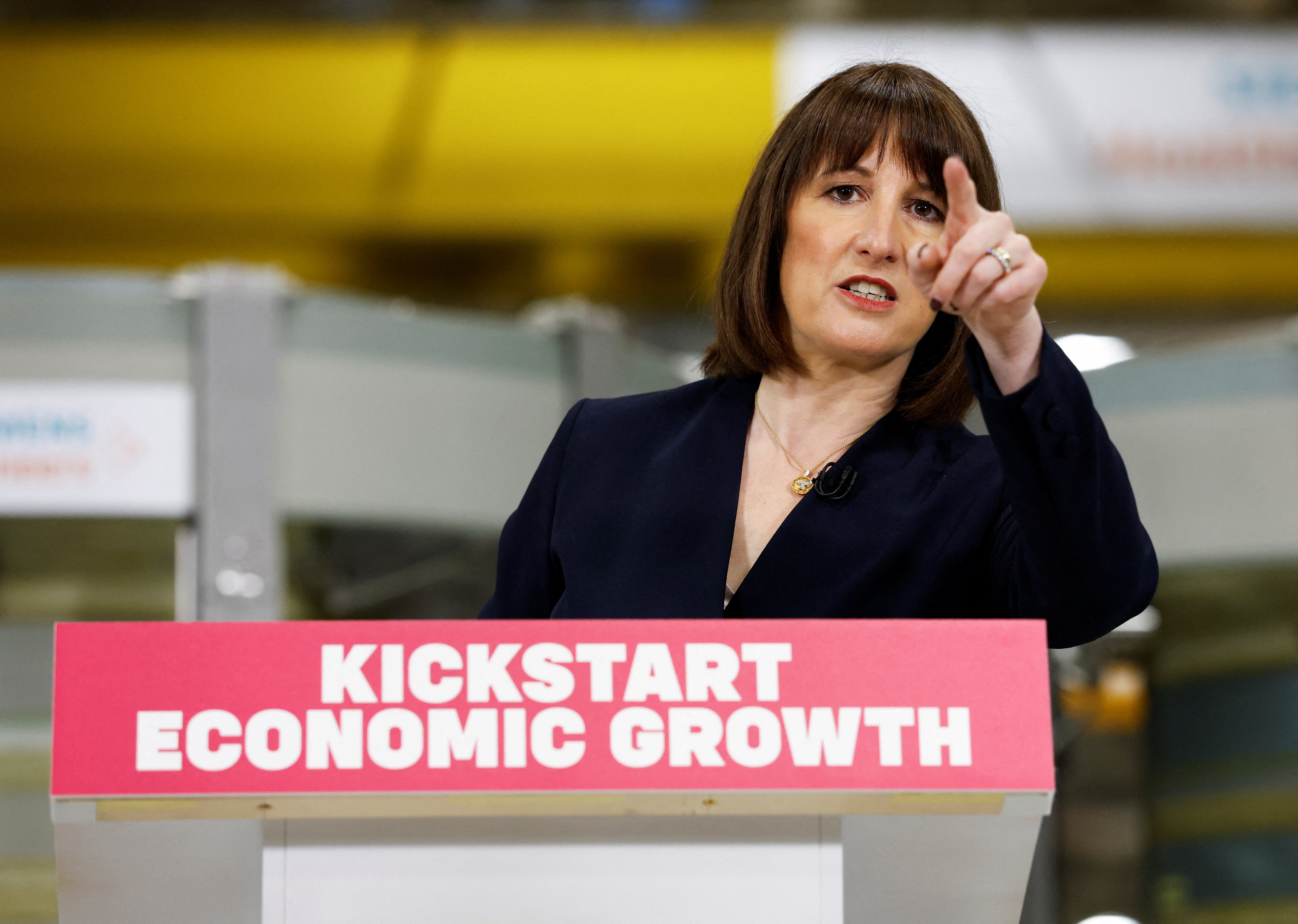Is this the first sign that Rachel Reeves’s plan could actually work?
A respected think tank believes the UK will grow at twice the rate predicted by the Bank of England – and it’s all thanks to Rachel Reeves’s Budget. Can that possibly be right, asks James Moore


When the National Institute of Economic and Social Research (Niesr) speaks, people pay attention. Especially when it says: “You’ve got it wrong,” to the Bank of England.
Britain’s oldest independent economics research institute did just that, in so many words, when it concluded that the UK will earn the G7 economic bronze medal this year by growing twice as fast as the Bank expects.
That puts it in third place, behind Canada and the US, but ahead of Japan and the three European members, Germany, France and Italy.
Its growth forecast – 1.5 per cent – is hardly what you’d call an economy “going gangbusters”, to quote a certain Rishi Sunak.
But its view will still come as music to the ears of embattled chancellor Rachel Reeves. The No 11 soundtrack has, if only for a day, switched to Beethoven’s Pastoral Symphony instead of Slayer.
The Bank, which has faced heavy criticism over its forecasting record, last week downgraded its own GDP growth forecast, halving it from 1.5 per cent to 0.75 per cent.
Niesr’s view is that the big increase in public spending contained in the Budget – the borrowing-funded investment the government is planning to unleash – will give the economy a sugar rush. This, it says, “will start having a tangible effect during the course of 2025, coupled with continued growth in business investment”.
Here is the first point of contention because business is saying something different about investment, thanks to another Budget measure: the increase in employer national insurance contributions (NICs).
That measure has brought winter to the labour market, with companies cutting back on hiring and starting to lay off workers. It has also hit confidence and taken a big bite out of businesses’ investment plans, which are being mothballed in anticipation of the rise in costs when the NICs increase lands in April.
It would help if consumer confidence was rosy. Previous chancellors have been able to rely on the resilience of the British shopper. Now, not so much. Consumer confidence has also been mired in negative territory, for months.
Is there any sign of this changing? Niesr thinks there will be “some positive effect on lower income households”, thanks to the substantial hike in the national minimum wage. This, it says, “will also translate into higher labour market participation”, which is something else the government badly wants to see happening. But living standards aren’t expected to regain what was lost between 2022 and 2024, thanks to inflation and particularly high energy costs, until 2027.
The forecast isn’t all sunshine and flowers. Niesr thinks Reeves will be able to remain within her fiscal rules, governing how much she can borrow, but only just. It warns that Britain will have “no headroom by the end of the parliament to absorb any shocks or boost public investment”. Economic shocks, shocks full stop, have been a feature of the past few years, so bear that in mind.
While it believes inflation won’t match the Bank of England’s scary(ish) peak forecast – 3.7 per cent – it also fears that there will be “limited scope” for interest rate cuts because of “persistent wage growth… together with an expansionary fiscal policy” and a falling pound. It anticipates “just one further cut” which is in opposition to market expectations of two, or even three.
Credit is due to Niesr for refusing to slip into the groupthink that is a persistent feature of economic forecasting. This is a bold and relatively optimistic assessment.
It is also one conducted amid a high level of uncertainty. Forecasters take a lot of flak when the actual numbers come in and show that they’ve been prancing about in the emperor’s new clothes. Some of this is justified. But add the actions of the US’s quixotic and disruptive president into a chaotic mix, and it sometimes seems as if you could stick a pin into a table of numbers on a piece of paper and stand about as much chance of getting it right as the pointy heads.
While the Bank of England’s starkly different view is indeed pessimistic, it looks more in line with what we’re seeing and hearing from important constituents of UK plc.
Niesr’s forecast relies on Reeves’s magic beans doing the business. I fear it has overestimated their power of enchantment, especially from a business community which is currently deeply disenchanted with a government it had high hopes for. And it is not alone in that.
Join our commenting forum
Join thought-provoking conversations, follow other Independent readers and see their replies
Comments
Bookmark popover
Removed from bookmarks